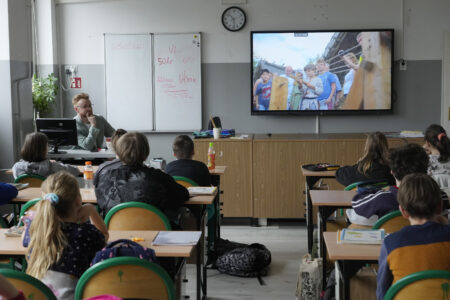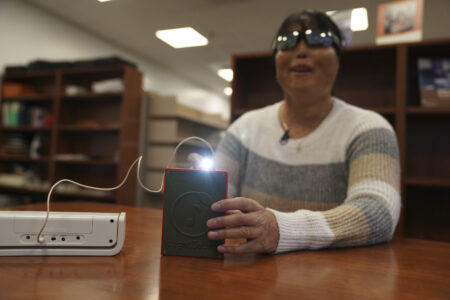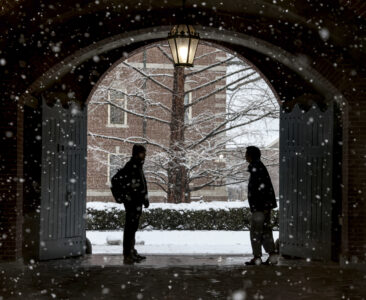Rural teachers seek creative ways to boost STEM education
JEFFERSON CITY (AP) — Sophie Chambers was learning just how far behind her school was falling.
Chambers, a teacher in the Chillicothe school district, had attended several state and national conferences and had seen what was possible.
She said the science curriculum at her school is very hands off because of a lack of funding. They can’t give each student “the science lab equipment we wish they had, or the robotics, or those kinds of things.” She said she thought about how she could start a program with what was available to her and within the hour of her weekly after-school program.
In the past three years, Chambers has raised approximately $25,000 by applying for grants. She purchased a few robots for the students weekly after-school club, allowing them to “explore with different tools that we don’t have enough of in our regular curriculum, or in the type of independent studies that they want to do, or don’t get to do in a regular day,” she said.
“Foundations and charities are really willing to give to the STEM movement right now, so that has helped us a ton to have state-of-the-art equipment in our club, but now we want to move to our whole district,”Chambers said.
A local bank donated funding for the students’ transportation, Chambers said. They came to the Capitol last month to be around other students and educators who share their passion for Science, Technology, Engineering and Math (STEM).
Forty of the students who visited the Capitol for the event were fourth-, fifth- and sixth-from Livingston County. They made the two-and-a-half-hour drive to Jefferson City because “it’s important for students from rural communities to see how big STEM is, not just on a state level but on a global level,” Chambers said.
A big part of the reason that groups visit the Capitol is to push for state funding. Rep. Rusty Black, R-Chillicothe, an agriculture educator for 32 years, said it’s better for schools to build their own programs than for government to provide start-up money because that can end.
During his time in education, he said he’s “watched state, federal government and private entities provide startup funding. School leaders got accustomed to having the money, and when the money dried up, the local level had to make a decision to cut something.





